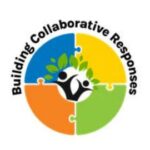About the Project
 Human trafficking involves people being bought, sold, and forced into labor and/or sexual exploitation. It’s estimated that eighty percent of trafficking victims are women and girls.
Human trafficking involves people being bought, sold, and forced into labor and/or sexual exploitation. It’s estimated that eighty percent of trafficking victims are women and girls.
Domestic violence, sexual assault, and human trafficking are interrelated issues for many survivors. Building relationships with allies and organizations and developing collaborative strategies in the community is critical to improving services to meet the needs of trafficked survivors.
Through the Building Collaborative Responses Project, FUTURES provides training and technical assistance to Office on Violence Against Women (OVW) grantees and their partners building collaborations to effectively and appropriately assist and identify domestic violence and sexual assault survivors who are also survivors of trafficking.
Training Institute and Webinars
The project offers a 2-day interactive training institute for 2-4 person multidisciplinary teams and may include OVW grantees, attorneys, legal advocates, faith based providers, law enforcement, or anti-violence advocates. Led by national experts on human trafficking, the goals of the institute are to assist participants develop or enhance antitrafficking collaborations; identify victim-centered strategies to assist survivors, and develop action plans to implement a collaborative response to address trafficking in their community. We organize several national webinars throughout the year on topics related to collaboration and trafficking. The webinars are open to the public and recorded.
Technical Assistance
FUTURES provides technical assistance to OVW grantees and their partners seeking to work collaboratively and identify best practices in preventing trafficking. Site visits and tailored trainings on trafficking may also be available to OVW grantees and their partners as resources permit. We also have an extensive toolkit of resources that we can share, including sample protocols and case management procedures.
To request technical assistance or for more information on the Building Collaborative Responses Project, please
contact Mónica Arenas at marenas@futureswithoutviolence.org.


